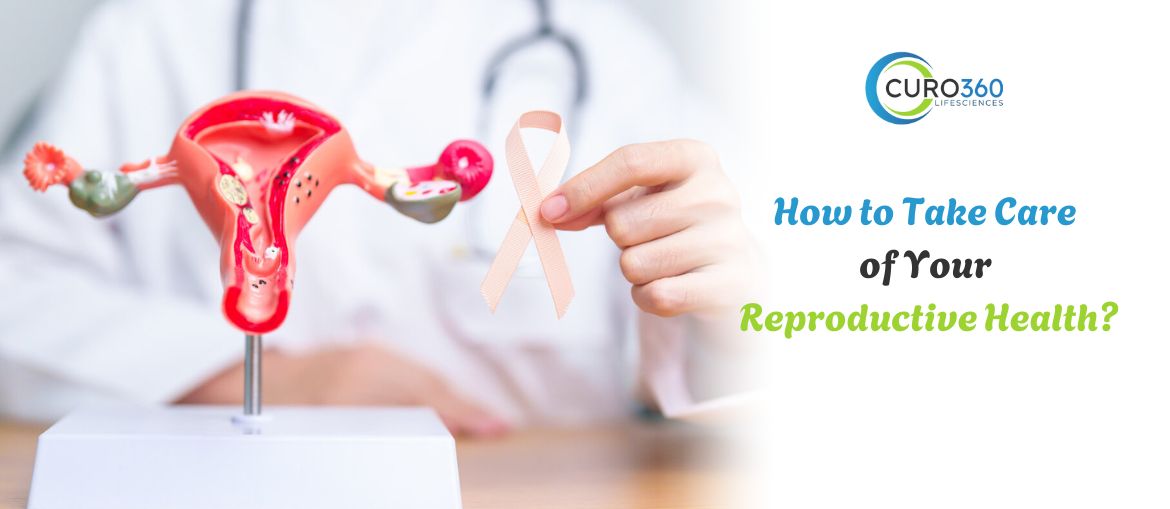
Reproductive health is a vital part of well-being. It affects pregnancy, fertility, and hormonal balance. Taking care of reproductive health helps in preventing hormonal issues, infections, and complications related to pregnancy. Both men and women need to follow healthy habits to maintain good reproductive health. There are many factors involved in keeping the reproductive system healthy, such as diet, lifestyle, regular medical check-ups, and hygiene. Ignoring reproductive health can lead to irregular periods, infections, fertility issues, and other complications. All you need to do is make simple changes in your daily routine. By adopting healthy habits, one can improve reproductive health and prevent major health problems.
1. Maintain a Healthy Diet
Eating a balanced diet is essential for reproductive health. Nutrients like minerals, vitamins, and antioxidants support hormone production and fertility. Foods rich in omega-3 fatty acids, folic acid, and iron help improve reproductive function. Processed foods, unhealthy fats, and excess sugar can lead to hormonal imbalance and fertility issues. Drinking plenty of water keeps the body hydrated and supports healthy organ function. Both men and women should include vegetables, fruits, lean protein, and whole grains in their diet. Avoiding excessive caffeine and alcohol can prevent reproductive health problems. A well-balanced diet ensures regular menstrual cycles, healthy sperm, and well-being.
2. Safe Intimacy
Maintaining hygiene is essential to prevent infections that affect reproductive health. Poor hygiene leads to bacterial and fungal infections that cause complications. Washing intimate areas with mild cleansers and clean towels helps maintain hygiene. Using protection during intimacy reduces the risk of sexually transmitted diseases (STDs). Regular screening and medical check-ups help in the early detection of reproductive health issues. Women should avoid using harsh chemicals in their intimate areas, as they can disturb the natural balance of bacteria. Men should also follow proper hygiene practices. Safe and responsible intimacy habits help in protecting reproductive health and fertility.
3. Manage Stress
Stress has a direct impact on reproductive health. High stress levels can lead to hormonal imbalances, reduced sperm quality, and irregular periods. Practicing relaxation techniques like meditation, yoga, and deep breathing can help reduce stress. Make sure to engage in hobbies and spend time with loved ones, as this helps improve mental well-being. Getting enough sleep is equally important. Poor sleep patterns can negatively affect hormone levels and lead to fertility issues. Aim for 7 to 9 hours of quality sleep each night to support health. Proper rest and stress management help in hormone balance and better reproductive health.
4. Exercise Regularly
Regular exercise is important for reproductive health. Physical activity helps balance hormones, reduce stress, and improve blood circulation to reproductive organs. However, too much exercise or extreme weight loss can cause irregular periods and fertility issues. Obesity is linked to hormonal imbalances, PCOS, and other reproductive disorders. Therefore, it is important to maintain a healthy weight that supports fertility. Activities like yoga, walking, and strength training improve reproductive health. It is important to have a balanced approach to fitness. Neither too much nor too little exercise is beneficial. A healthy weight improves the chances of conception and overall reproductive well-being.
Taking proper care of reproductive health is important. A healthy diet, regular exercise, stress management, and safe intimacy practices play an important role in maintaining reproductive health. Ignoring reproductive health can lead to fertility issues and hormonal problems. So, make sure to prioritize reproductive health, especially if you are planning to start a family.
